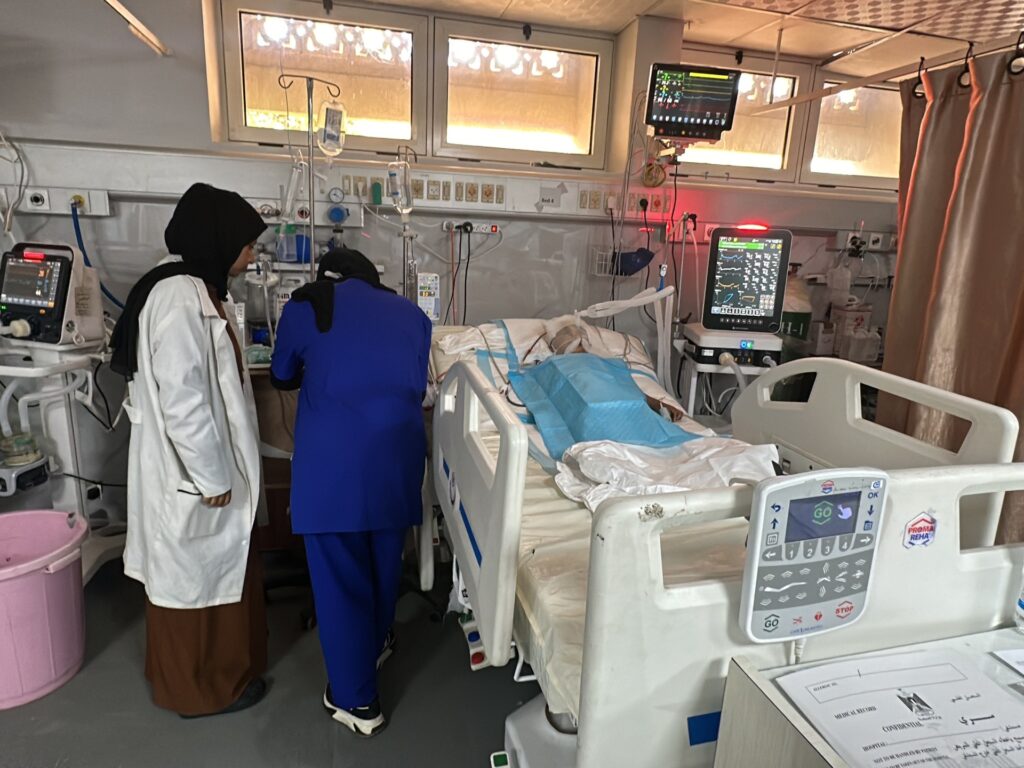Doctors Without Borders said on Friday that it is facing a severe shortage of essential medicines and medical equipment in the Gaza Strip, and that it may be “forced to stop or reduce” some of its medical activities in Gaza.
The international organization said, in a statement, that since the end of last April, it has been unable to bring any medical supplies into the Strip, which has been subjected to a devastating Israeli war for about 9 months.
The statement explained that the closure of the Rafah border crossing with Egypt following the Israeli attack on the southern Gaza Strip, on May 6, greatly obstructed the flow of humanitarian aid through the Kerem Shalom crossing (south).
For her part, the organization’s coordinator in Palestine, Guimet Touma, said, “Medical supplies are very few due to the limited aid that the Israeli authorities allow to enter Gaza,” according to the statement.
She added, “If we are unable to bring medical supplies to Gaza soon, we may be forced to stop our medical activities. This is a reality that we refuse to imagine, given the dire medical needs of thousands of people in Gaza.”
Touma explained that there are “patients suffering from severe burns and open fractures, and we (Doctors Without Borders) do not even have enough painkillers to alleviate their suffering.”
She continued, “Our teams in Nasser and Al-Aqsa hospitals were forced to reduce the number of times they changed bandages for patients suffering from severe burns due to the lack of sterile gauze, which could lead to more infected wounds.”
The statement explained that with 75% of Gaza’s population displaced and forced to live in horrific conditions, MSF teams have witnessed an increase in the number of patients suffering from skin diseases such as scabies over the past month, while the stock of medicines needed to treat them is dangerously declining.
He stressed that in Khan Yunis (south), the organization was unable to provide general medical consultations for several days at the Al-Attar Health Care Center, which it recently opened, due to the lack of supplies and medicines necessary to manage activities.
Stuck aid
The organization explained that it currently has 6 trucks loaded with a total of 37 tons of supplies, most of which are basic medical materials, and that they have been stuck since June 14 on the Egyptian side of the Kerem Shalom crossing, and cannot be brought into Gaza, where they are desperately needed to save people’s lives.
The organization’s coordinator said, “These trucks are lined up stuck with approximately 1,200 other trucks waiting to enter the Gaza Strip.”
She described this as “incomprehensible and unacceptable; it is like asking a firefighter to watch a house full of people burning and preventing him from extinguishing the fire.”
Touma called on the Israeli authorities to expedite the opening of more crossing points to relieve overcrowding at the Kerem Shalom crossing, and to greatly accelerate the arrival of aid into Gaza on a daily basis.
It also called on all parties to ensure safe ways to transport humanitarian aid within the Strip.
She stressed that this is “the only way to prevent avoidable deaths.”
Since October 7, 2023, the Israeli occupation army has been waging a devastating war on Gaza with absolute American support, leaving more than 123,000 Palestinian martyrs and wounded, and more than 10,000 missing, in addition to a severe shortage of humanitarian and food supplies that have reached the point of famine, especially in the north. sector.
Israel continues its war despite two UN Security Council resolutions to stop it immediately, and orders from the International Court of Justice to end the invasion of the city of Rafah in the southern Gaza Strip, and to take measures to prevent acts of “genocide” and improve the dire humanitarian situation in Gaza.


